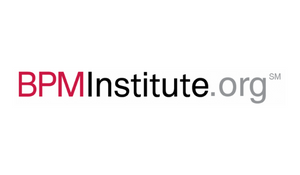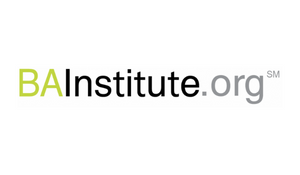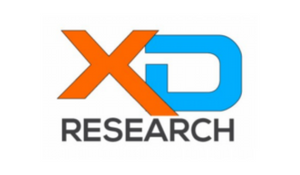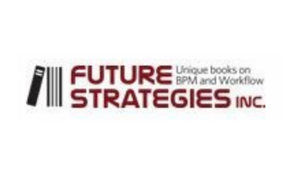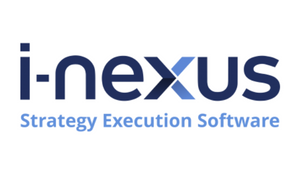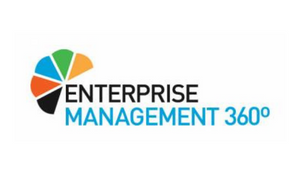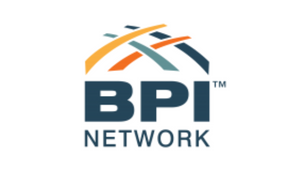
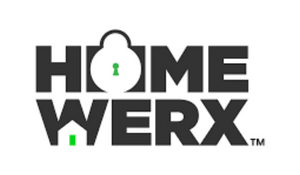
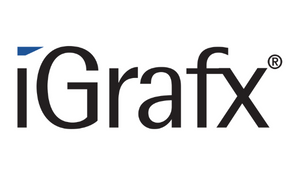
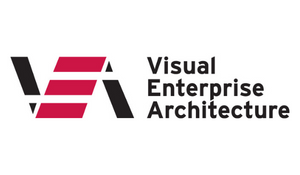
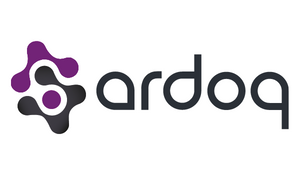
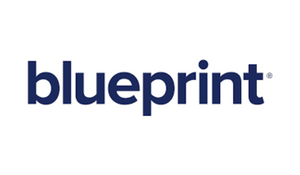
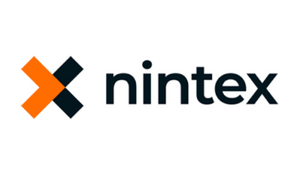
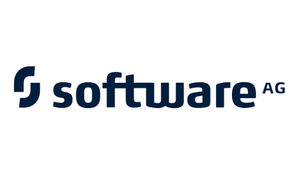
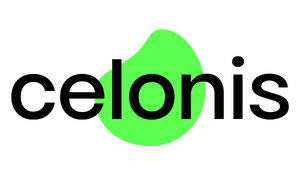
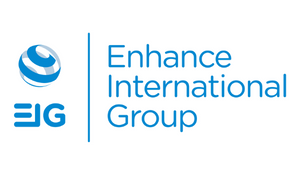
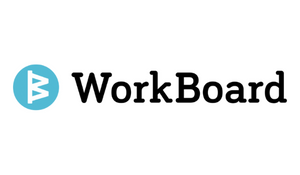
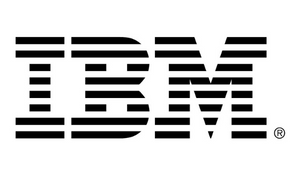
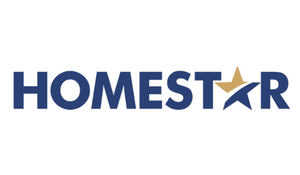
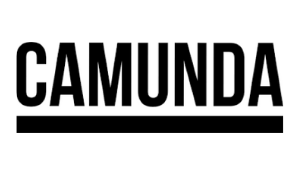
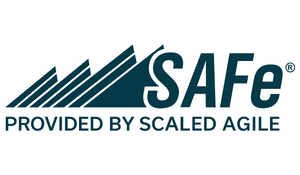
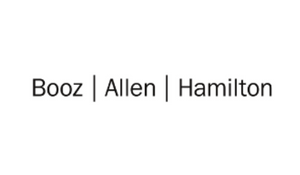
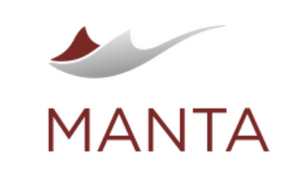
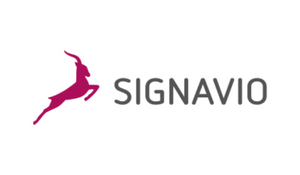
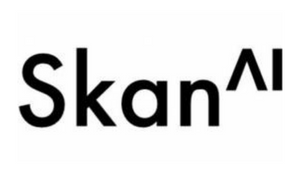

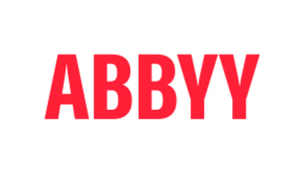
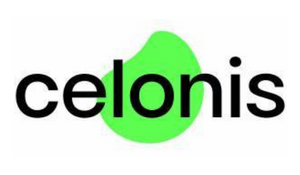
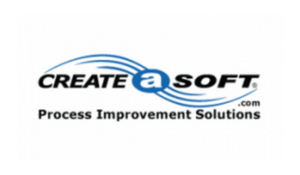
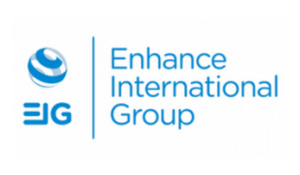
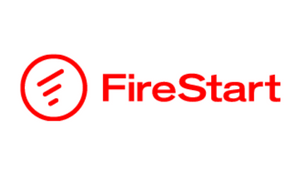

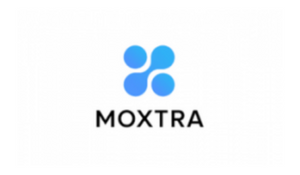
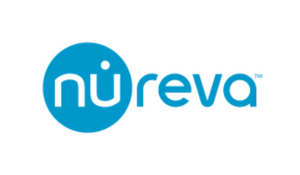
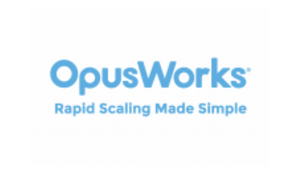
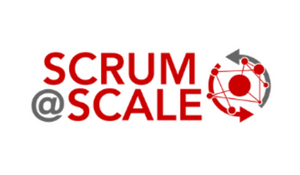
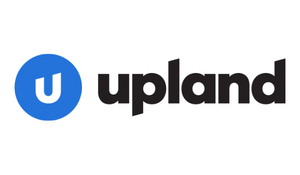
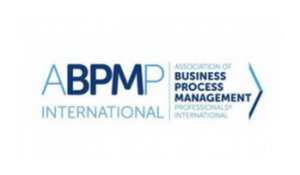
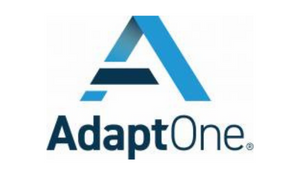
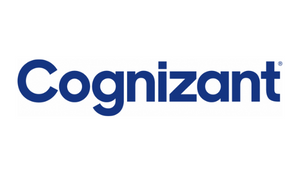
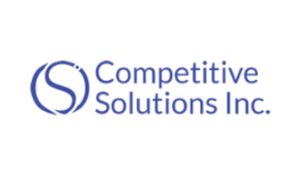
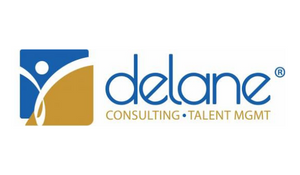

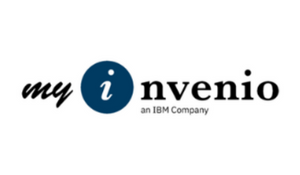
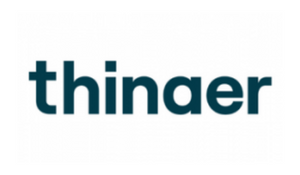
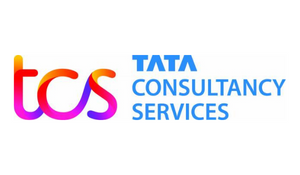
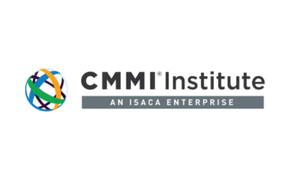
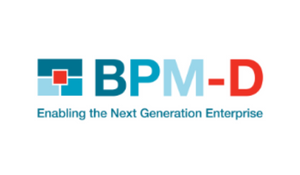
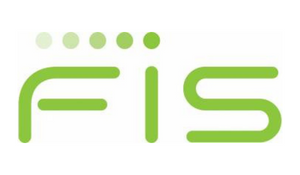
Courtesy of Christopher Hodges' below is a transcript of his speaking session on 'How to respond to supply chain chaos and motivate your team with Noble Automation' to Build a Thriving Enterprise that took place at the Supply Chain Planning Live Virtual Conference.
.png?width=300&name=BLOGS%20COMPANY%20LOGO%20(27).png)

Session Information:
Noble Automation Now is both a call to action and a holistic approach to achieving more success by combining Intelligent Automation with inspired leadership. Employing Noble Automation leads to more product and service innovation, higher employee engagement and successful business transformation.
Automation and AI are essential now and will be even more so in the future. Helping humans be heroes in this age of automation is the key to serving all stakeholders and building winning companies and teams. Fear and struggles give way to excitement and success.
Leadership takeaways:
Session Transcript:
Reducing this first speaker today, and I'm talking about the great Christopher Hodgetts, who is here with us, and Chris is, is, is well known by some members of our community. He is the author of Noble Automation, which is right behind him, right there. You can see that says book and, and he's an executive consultant in the speaker. For 25 years. He has been, he was a corporate leader at GE and consultant partner at Accenture and Deloitte. And he has helped Fortune 500 companies understand, apply and lead with tech knowledge. he awards business leaders to successfully embrace intelligent automation while inspiring in retaining their top talent.
And it's a real gift. Great to have you here again with us and thank you so much for taking the time to share your wisdom and expertise with our global audience today.
Thank you, Tricia. I certainly appreciate the introduction.
Hopefully, that is Wow. Sorry, that's not much of a way to start an event.
Well, hello, everybody.
Thank you, Joseph, for the introduction.
I'd like to jump right into here's how it goes.
Jack Welch had a problem, which meant he had a big problem. I had a small problem here, a small problem. I had a big problem. But I'm actually I'm getting a little ahead of myself and the way this is actually session goes.
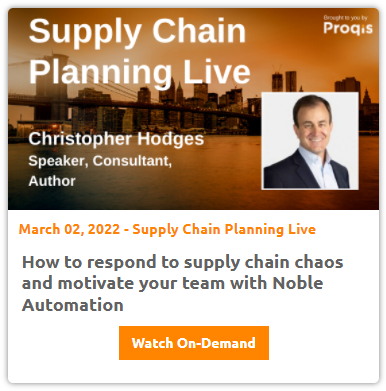 Let me explain what I mean by that.
Let me explain what I mean by that.
This is a story about leadership and technology adoption.
And today we have leadership challenges and what to do with supply chains and how to adopt technology to use it effectively.
And it starts with a Bochy Green Volvo.
OK, well, it wasn't quite this Boxee, but anyway Boxee Green Volvo. So it's 1996 and I am leaving the United States Navy.
It's my last tour in the United States Navy. And you might have a picture of something like this, something glamorous with a sunset and a combative ship. But the truth is, I was living in London, going to graduate school, finishing a short tour. It wasn't quite as exciting as that really need a ship.
However, the exciting part was, I was joining Jack Welch's, GE.
And Jack Welch's, GE, just at the time that six Sigma was kicking off.
Because six Sigma at that time, was Web three. Oh, it was.
I decentralized finance, it was the web, It was all of that level of hype in energy and excitement in 19 96. And so as a young guy going into a corporate environment, it was pretty **** exciting.
So there I was, I was leaving the Navy, but I was leaving the Navy would grad with graduate school loans, a couple of kids, and moving all the way across the world.
It was pretty Wreckless because I then bought this brand new Volvo.
And the question is why would you extend yourself and buy a brand new Volvo when you're just leaping out into the world?
And the reason is I grew up valuing three things, particularly.
one was quality, one was reliability and one was positive Fatherly praise. Well, Jack Welch, who's going to be positive fatherly, praise quality, was going to be six Sigma and reliability. And stability was going to be this Volvo.
So extend myself. I did.
I moved to Silicon Valley. Well, this building wasn't there at the time.
But I moved to Silicon Valley, which is perfect for a Anglo Asian family, my wife's Japanese.
And we couldn't afford to buy a house in Silicon Valley. And you certainly couldn't do it now.
So we rented a place and we didn't have a dog. And so the Volvo kind of became the family pet and the family talk. Anyone who owns a Volvo can understand what that's all about. And it feels anyway.
So for two years and two states and four houses, I worked like a maniac to pay off those school loans. While my family, you know, kind of button things down. And the Volvo became our sense of stability.
Well, after two years, I finally got, sorry, three years. I got a great opportunity to go to Tokyo and take my first big job with GE.
 And so I was gonna move my wife. Who is, of course I said as Japanese to Tokyo? Very exciting, everything was looking great.
And so I was gonna move my wife. Who is, of course I said as Japanese to Tokyo? Very exciting, everything was looking great.
We get to Japan. She's excited.
I'm excited right up until I get off the elevator on the top floor of the ANA hotel for the Welcome Party.
Maybe you've been to the 36th floor or the ANA hotel in Tokyo.
There's a Tiffany aki restaurant up there.
Think of benihana, right? But instead of benihana where they make volcanoes of onions and all that other crazy stuff, Japanese don't do that kinda theatrical.
But what they do is they put live shrimp right on the grill, so little scary to watch.
Anyway, so I step off the elevator.
I put my hand out and I say to the Boston, I've never met before.
I'm here to help you run six Sigma.
Any business, which we're Jack Welch's, top two priorities. So I'm all excited about that.
Then the tone changed, he looks at me and he says, Reaches out his hand.
That's too bad because the two things I don't care about are six Sigma.
Any business?
I don't know about you, but I went from feeling like the excited young guy ready to do a good job.
Kinda like the people in your organization right now to feeling like I was one of those shrimp cooked on the grill.
So I went back to the hotel room and I thought about saying, to my wife, we gotta reconsider this job.
This isn't going to go, but when I got back, she was so excited to be in Japan.
Then I said, well, we're going to make this happen, we're simply going to make this happen.
So, I had another problem back in the United States was that Volvo and we had no place to store it.
So, we had a choice, sell it or spend a huge amount of money to bring it to Japan.
So, ask yourself, would you sell the family dog?
Of course, not, you don't sell the family dog.
So, we spent a bunch of money and brought it all the way to Japan.
So there I am with the stability again.
So when I, when I actually had to go to work every day, thank Leslie, working on six Sigma, any business with my current boss. My family on the weekends, we would go around on the weekends and we would see Japan.
And so that's what we did. We spend a lot of time on the weekends seeing Japan driving a Volvo. Everything was great.
About a year goes by and Jack Welch announces. He's going to hold court on all GE businesses in Japan.
So he's going to come to Japan, and we're all going to present to him.
And we're going to do it at a four star hotel right in the middle of Tokyo. In fact, it's the four Seasons Hotel.
So that was pretty exciting.
So my boss be grudgingly says, to me, OK, Cresswell, you get two slides and five minutes.
Now, I don't know about you But your career ever depended on two slides in five minutes well. That's what mind it. So I worked like a maniac to try to get ready for those two slides in five minutes. And I'd say, too much not ramble, and all that kind of thing.
So the time finally came. And Jack sat in the middle of this conference table and each of the businesses paraded in and out. Now, like I said, I was pretty young at the time.
So it's kind of intimidating experience Then the real Intimidating experience is seeing Jack at the other side of the table, right?
The time came and he flipped through the pages.
And he finally looks up at me, and he says, OK, Chris, what have you got?
And I don't know about you, but it looked like this to me, tunnel, vision straight down, which can also see space.
So, I gave my five minute presentation, and I managed to not say anything stupid, and I managed to talk about a new electronic document approval process that we had put in place first of its kind in Japan. I know that sounds very ancient in today's world, but it was really advanced. No more stamps and signatures, and all that kind of thing.
So I was excited, I get through that, I didn't blow up.
Then Jack, as Jack always does, asked two really, very difficult questions.
So when he asked those questions, you kind of freeze a little bit. and I was smart enough, and lucky enough, or whatever, and I got it.
And then he wrote best page in the deck across the page that I had given.
Now, I don't know about you guys, but I wanted to crime climb across the table, and grab that page, and keep it like a reward. For the rest of my life. That probably would have been a career ending move. So I didn't do that.
But when the meeting ended, everyone got up, and as I got up, I had to kind of walk out the door, a very crowded room at this time.
I'd walk out the door, and I was whisper close to my boss, so fact, so close. In fact.
He could have, of course said something to me.
Not only did he not recognize that I just made our part, that small part of the business look good for him and the rest of the company.
He didn't even make eye contact with me.
It was horrible. It was, I couldn't believe it, you know, no matter how much glamorous stuff in these foreign countries, or whatever, it doesn't matter if nobody cares about what you do.
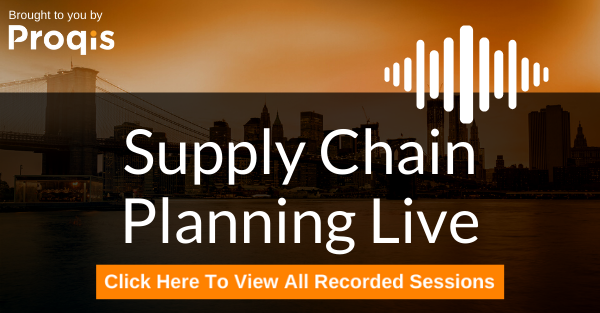 So, when I left that room, I said to myself, I will never let this happen to a subordinate, implementing any complicated technology, whether it's in supply chain or automated processes or anything else.
So, when I left that room, I said to myself, I will never let this happen to a subordinate, implementing any complicated technology, whether it's in supply chain or automated processes or anything else.
You just don't do that to people, But that's when I realized.
Jack had a problem.
And his problem was that he was sold on quality and the business and so were many of his leaders, But, several of them were not.
And that's what happens to a lot of leaders, some of the people underneath them simply don't get it, and those of us who are several layers below end up paying the price.
Times have changed, we've moved on. six Sigma is kind of a part of many businesses, great, important thing.
So some things are different today, and some things are the same, and I'd like to cover what some of those are.
So, what's really relevant today to supply chain planning, is we used to take supply chain planning, almost for granted in the days of just in time, and it was all working. Right?
But now the supply chain looks like the end of Indiana Jones, in the temple, in Indiana Jones, and the and the Raiders of the Lost Ark.
You may remember this picture ports all over the world, packed with things every, where nobody can get the things that they need, Supply chain, planning, has gone into chaos, and the pressure that's gone on the people to meet that chaos in supply chain planning is immense.
Another major thing that's changed is the workforce.
No longer is someone my age, the baby boomer. The young, an up and coming person in the company, right? The young young up and coming people in the company, or a completely different generation.
Millennials and gen Zs. Before anybody goes off and says, Millennials are a pain, or they're overly demanding, My personal opinion is, millennials ask for the same things. We would've asked for if you're in my generation, if we thought we could have got it.
Now, they just walk out the door.
They don't like that off streets and badly. They just leave, It's a different world.
11:01
Another thing that's very different, and this ties directly yesterday into UI path, and we're going to talk about that in a minute, is the simple automations that we were able to do 20 years ago, 30 years ago.
11:12
Or nothing compared to what a company like UI path can help you do in the intelligent automation space. The capabilities are mind blowing, and we'll cover some of those in just a minute. And actually, yesterday, we had a great presentation on intelligent automation. If you didn't see yesterday's presentation from UI path, go back and watch it, watch it that compare, and put these two together, and you'll see that it's like a puzzle pieces fitting together.
So, the world is very different and automation.
Another things change, Jack retired. In fact, he passed away. His successor had a lot of trouble with GE.
Is the new Chairman of GE Larry Cope, is guess what? Bringing back, business, transformation, technology, implementation, et cetera, it's exciting times at GE right now, after a real tough period of time.
Some things are still the same.
And the first thing is still the same.
Is that business transformations by enlarge fail McKinsey study?
And everyone quotes McKinsey, because they're so fun to quote, Did a comprehensive study on this subject comprehensive they, they interviewed thousands of people, And 70% of all business transformations fail to reach their targets.
And we're doing business transformations faster than we've ever done them before.
So, what does that mean?
It means we're destroying value faster than we've ever destroyed it. And we're still failing.
That is a very scary thought.
So think about that as the world struggles with what it's going through today.
Another thing that is still the same is that there are millions of young, talented people, some of whom will watch this recording, or who are on the on this session right now watching this.
Who are living what Henry David Thoreau would have called Lives of quiet desperation, trying to make their supply chain work better, trying to respond, trying to implement technology, trying to simply try it.
And the reason it's happening is that there are still too many bosses, like the boss I had in Tokyo.
So what does that mean?
Well, I think the implications of all of this is that transformations are more important than they've ever been, the pressure on the business and the supply chain in particular, but the pressure on the business is immense to succeed. We're throwing the war in Europe right now. The pressure is just immense. So transformations are that much more important. And we have to get them right.
You might say, Well, well, why? Well, back to my workforce.
If you're not careful, you're going to show up one day. This is a Wall Street Journal article. You're going to show up one day, and the people who used to work with are gone.
.png?width=742&name=Screenshot%20(4).png) So unless you're planning acquitting, we really need to get this right and get the people to feel better about what they're doing.
So unless you're planning acquitting, we really need to get this right and get the people to feel better about what they're doing.
Sorry, early in the morning for me, to get better about what they're doing.
And the way to do that.
I think it's not to have them just have autonomy and do whatever, and have a yoga room and all that.
It's a very ancient call to action, and that call to action is to be a hero, because people want to be heroes on a small or a large scale. They want to feel heroic about the work that they do.
And you may say, Well, what does it mean to be hero?
Doesn't mean you have to have X-ray vision, and fly through the sky, was a really cool cape. No.
A hero is a person who lives more of their potential than a normal person and achieves inspirational goals, including conquering.
They're less ourselves.
That is what makes people come to the office. Stay in the office and feel great about what they're doing.
So let's take a little bit of a journey here on what I mean by hero, and how long that goes back in history.
And we're going to go back to Joseph Campbell.
When Joseph Campbell died about 20 years ago, he was the leading authority in the world on mythology.
Well, what does mythology mean? He went to hundreds of cultures and studied the myths of those individual cultures. They may have been, Native American cultures, are cultures in Australia or New Zealand or in Europe or in Asia.
And what he found, what's this repeat repeating pattern?
And it was call, he called it the hero's journey.
And what the hero's journey is, it's not just a myth.
It's what human beings project into our myths into our stories, because it's how we want to live and it's how we do live.
and you'll recognize these myths from very common things.
So take the Hobbit, the movie, The Hobbit, or the bourne identity were the Matrix or Harry Potter and the all the whole Harry Potter series or Star Wars. Every one of these stories.
It's based on the hero's journey.
You may say, well, Chris, you know we're in real business here. Supply chains to run. What about real people?
15:57
Well, here's the real people.
These people, if you look, study the biographies of each one of these people, every one of these people did exactly what the hero's journey is or followed it. They didn't do it on purpose. It's just what happened.
You may say well, of course, I know Winston Churchill, and Martin, Luther King and Madame Curie, Steve Jobs. Everybody knows those person. But who is that person in the in the picture there?
Well, that's the only hero in this space that I actually know.
Name is Sununu, Sunita Williams.
He was a classmate of mine from the Naval Academy and she is the only astronaut from our class.
She has spent more time with the International Space Station that I spent on an aircraft carrier.
And I know her personal life journey overcame, many of the barriers that you run into in the hero's journey.
So what about your company and your job?
Well, let's briefly say what is the hero's journey?
I put this whole page up here just to show you what it is. You can look it up. You can find it and actually here, as well. The hero's journey has got many set pieces.
But let's talk about the basics that you really need to think through and how they relate to your job and your business and your supply chain.
The hero's journey has three phases.
The first starts at the top.
The first is separation separation is breaking free from what the past was breaking, free from your mundane breaking free from the way things used to be, and going and realizing there's this other thing to do, Right, it's Luke Skywalker Breaking free, realizing the farm was burned down, and you gotta go do something, so that's separation.
So think of the matrix, it's where Neo takes the takes the red pill and suddenly realizes the world is completely different.
It's where Harry Potter suddenly realizes he's a wizard.
It's where Luke Skywalker realizes there's something else beyond this life, and tend to Lean.
The next phase is the initiation.
Initiation is where the person suddenly realizes there's these other things to do, And they have a mentor usually who helps them learn these other things, So think of Luke Skywalker Learning the Lightsaber in the force, Harry Water, Eric Potter, and the wand, Right?
This is where you're breaking free and you're doing something else, Frodo realizes what the dragon is all about and The Hobbit.
Then the initiation phase is one of the, I'm compressing this a lot. But the initiation phase is one of the most critical things that everyone has to face because in order to finish the hero's journey, you have to face the dragon.
And Campbell tells us that the dragon is in mythology.
Specifically because it is the biggest baddest hardest to overcome thing we can think of.
It's not really the biggest baddest, hardest thing to overcome, but we tell ourselves it is, we are intimidated by the challenge that we're going to have to face. So maybe that's an employee who's never stood up and spoken at a team meeting. Or someone who's never managed, A team. Someone who has never sold a business or done a merger and acquisition. Someone who has never taken a company public, it doesn't matter. The scale.
 The point is the dragon is the thing you fear the most And you project it outside yourself as if you can't overcome it.
The point is the dragon is the thing you fear the most And you project it outside yourself as if you can't overcome it.
But in order to complete the hero's journey, you need to face the dragon.
And when you do, you transcend your form herself, become better.
The last phase is the return.
The return is where the hero comes back to the previous their tribes, their their office, their team, whatever. And they are a transcendent person.
Maybe they bring back treasure.
You accomplish a big project, and you get a big bonus, Maybe they'd just bring back a better sense of self, they elevated themselves to another level, they stretch, they've become more than they were before, and you know how it looks, right? This is the, coming back to the Tribe with the award, from Star Wars. You can start to see this pattern repeats.
Then the final thing is now, your Backend shyer, this is Bilbo Baggins House.
So, you're back in the shire.
You're back in your team, your back and your office. You're back wherever you are. And things are fine, again, their call.
But the problem is, human beings are not happy being full, dumb, unhappy, in a room.
They're really not happy.
They very quickly get edgy.
And the way you know you're getting edgy is when the phone starts to ring.
And you look at it and it doesn't say on the phone but it says, The call to adventure on the phone. You can throw the phone away, put it under your pillow or whatever you gotta do.
The call to Adventure, as Joseph Campbells tells us, is your next hero's journey.
That's where you're going to transcend and go to the next level of achievement.
So now I'd like to come out of the hero's journey and take you to Stockholm Sweden in 20 17.
So I'm in Stockholm.
Was a business struggling with results?
It's in fact, there are 2, 2 characters in this real life story.
One's name, yes, he was a director And the other is Gustaf and that's the CEO.
They were both looking at this red arrow from different angles.
20:59
Gustaf, as the leader of the company, was obviously facing, what's he going to do with the following results of the company?
And Gustaf had his own Dragon, Gustaf Dragon.
Was that Machiavellian forces of senior leadership teams.
Not all senior leadership teams are like that and you'd think maybe the Swedes wouldn't be, but they are in some degree.
They all have their own agendas, they're all struggling for recognition and accomplishments, et cetera.
Gustaf had to find a solution that served as the senior leadership team, but got the results to go the right direction, and not the wrong direction.
Well, you don't set a very different story using operations He's gotta figure out think of everyone at every supply chain in the world, right now they've got to figure out what do they do when it's three times the pressure in the same number of resources in the business That's what ... faced. It was complex, and overwhelming, You didn't know exactly what to do with it.
Well, the two of them are thinking about so they've told me, right. I've heard this story came from the two of them. So the two of them are thinking about this at different points.
one lucky day they get into an elevator. That's not a good picture because build buildings in Stockholm are not that tall, very few of them, they get into an elevator. At the same time the CEOs are friendly guy. So he says good Morgan, Yes.
And three minutes later, they step off of this elevator.
What happened on the elevator according to Yes is, Yes, Decided there was his chance to tell the CEO what he thought.
So when they stepped off the elevator, Gustaf looked at yann's and said, I understand what you're talking about automation somewhat.
You have 30 days to come back with a plan, or we have to take drastic action.
Everybody knows what drastic action is in any country, right? That's a bad thing.
And yeah, just knew that, so we had 30 days.
Well, this was a very fortuitous time because that's just when I met yes.
And I knew a great deal about intelligent automation, which is why I was so excited to watch you. I pass presentation yesterday. I knew a great deal about intelligent automation, which was really emerging and going forward at full speed.
And he asked to do a great deal about the business.
Well, you combine those two people together in a couple of hot cups of coffee.
You can come up with some pretty amazing things.
Yes, his first question is, well, what does this stuff do, and how do we do it, and where could it be done?
Well, we worked very intensely to come up with a plan that he could take back to the CEO.
Remember that two minutes and five slides thing? You know, your whole careers on the line? Well, he got more than two minutes and five slides, thank God.
So, he was prepared.
And, when he asked, finally, met with Gustaf, he had a plant and the plant, he had served all the stakeholders in the business.
That means, the customers would benefit, the employees would benefit.
And the society would benefit most importantly. What yes knew he had to deal with. and Gustav had to deal with That senior leadership team had to be on board.
So, that's what they did.
So, for several months, I was able to work with these, these, these two people in their teams, and I have to say, it was an amazing ride to be able to make those kinds of improvements in the business.
And, you don't need to go into all the details of this now, but I do want to hit some of the key points.
What did they achieve? They achieved more innovation. They were able to innovate products.
They were able to use these new tools to do things they couldn't have done before, they motivated the team.
How do you motivate the team? You start off by not telling them they're all going to lose their jobs, Right?
And they made more profit. And, of course, everybody wants to know about the profit well, on this particular project, which is pretty comprehensive, they made a 300% ROI on the investment that they made, both in the consulting, in the technology with software licenses.
But the most important thing that all of these people achieve according to them in my reflection and watching, was a shared purpose.
 They felt committed to what they were doing.
They felt committed to what they were doing.
And, it's because of how they did it.
They got to that shared purpose.
That is what's required today in supply chain planning. Supply chain changes, technology implementations, you have to have that shared purpose. So, for the, for the sake of today, I want to quickly take you through what, those seven steps included. And if you want to get more detail, of course, on this, you can do that, but for now, let me just get to the basic details. The first is informed and inspired leadership.
Well, what does that mean? It means leaders have to be thinking this way, and not just this way. You know, what is their team?
They have to think holistically and what does it look like? Holistically means the whole business right, easy to say. Not so easy to do. Gustaf had his hands full.
They have to act with knowledge. They have to know what these tools can do and not just grab the shiny new ball and run with it and cause a train wreck.
I suspect you've all been involved in a project like that, they'd have to say or send clear and consistent messages.
Anybody been in an organization where the CEO says something on Monday and then kind of sounds like he or she is hedging on Wednesday well that of course the doubters just destroy what you're doing.
And they had to focus on engaging employees, absolutely critical, none of this works.
As Jose said, Joe said in his presentation, you have to have the employees engaged, and the final point is: reflected glory: Gustaf didn't succeed unless the team succeeded.
Second step, understanding the technology, you're going to build something, you need to know what you can build it with. You're going to build a house and some simple thing, and all you understand, this very basic things, you can end up with a house that looks like this.
But if you start by understanding all the bricks and all the ingredients of intelligent automation, you can build something amazing.
Well, you can build something like this, and in case you don't recognize, recognize that, I'll come back to that picture in a minute.
So what are those tools we're talking about? And again, go back to UI path presentation. They did a wonderful job showing this yesterday, or pieces of this.
So some of those tools, robotic process automation, natural language processing, chatbots, virtual assistants, machine learning, and AI. And then keeping an eye to the future of the new stuff that might be relevant. That's what they focused on, right?
And what they didn't do is focus on, well, I'll show you what they didn't do.
The next step, now that they understood these tools was to focus on value creation, value creation, what does value creation think about it.
It's what the customers actually care that you do, right. That's value creation.
So know, that stuff that goes on internally, and it's not this.
Don't adopt some cool, you know, meta thing, I think it's great that he has a name for it. now. Meta, this is probably a great tool for some things. It wasn't for these people, or their company and what they're doing.
It didn't make sense, so focused on value, and when you do focus on value, you're chasing that pot of gold.
And as ...
from Nestle, who wrote the foreword of my book, said, when you focus on driving all the waste in garbage out of the company and get that gold, you can invest in the people, and innovate, and take the business going forward. That's exactly what they did.
The fourth Step, Empowered, and Excited Teams.
There's a lot more to this, but let me simplify it with employee engagement.
Employee engagement has seven major factors that there, that are systemically proven to drive wonderful engagement from people.
But what it really means is helping people genuinely feel important.
So the checklist is important to know what those things are. Like people love to develop. They love to get real feedback. Those are two of the points of the seven. But you know what it feels like.
So that magic seven was what they focused on employee engagement.
The fifth step is helping humans be heroes.
That's why I talked about the human the helping the hero's journey.
Helping humans be heroes means knowing everyone on that team has a path.
And if you don't help them see that path, they can create really negative paths. They can get all these fantasies and negative things happening in their world.
And they, especially when you talk about automation, intelligent automation, or technology, they can get really concerned about it.
So what did they do? They sat down and said, We've got to help these people see a path.
And by the way, some people's paths into hero's journey is outside the company.
They're gonna go do something else and that's OK.
But it should be something that the person recognizes, understands and embraces, not just they stumble into it on a Monday morning.
So, when it comes to technology, I think there's two pages, to show you what I mean by this, and what they did.
So, think of Star Wars. Hopefully, you've seen the first Star Wars movie.
three Heroes.
Potential heroes. They're fighting their way through the Death Star blasting, they're way bluffing, doing all kinds of amazing human, heroic things.
And that's fantastic. That's what humans are supposed to do. But still, they find themselves in a garbage compact.
Well, now what do you do? All the heroism in the world didn't work the princess's barking orders. The work you shouldn't bullets. The millennial go swimming, it's a disaster.
Sounds like some company environments you may have been in.
Well, how did they get out of it?
They got out of it by reaching out to a robot, and the robot did what no human can do.
The robot found every trash compactor on the ship and stopped them all, and let the heroes get out.
Then the heroes go back to being heroic.
So, if that's the way you look. And that's what Jensen Gustaf did in small and large ways help people find that path.
The final sixth thing is to find an operating model built for purpose. That sounds like a consulting firms. Let me put that in.
Real terms, If you enter a project like this and turn it over to the team, this is one of my real projects, by the way, turn it over to the team, and this is where it stops. You just go what you do? Well, it's not gonna work.
You gotta think through who, of course, how's it going to work. What are people going to do with the real people who are going to use these tools and actually keep that next order for shipping from Asia in your supply chain, what's really gonna look like?
So, here's an example.
Winchester Mystery House in San Jose, California.
The woman who built it, was convinced by a mystic that if she didn't keep building, she'd go to ****.
So, she built a house with 161 rooms, 41 or 47 fireplaces, 10000 panes of glass.
All because the mystic told her to keep building.
31:25
Well, that's chaos. And if you do that in a business, eventually the business will collapse completely different alternatives.
Frank Lloyd Wright built this house in 19 34, 36 or 836. And it was recognized as the most important whomever built in the United States in the 20th century.
And how did you do that?
First of all, I spent two years visiting the site before a single pencil went to the page, because Frank Lloyd Wright said, I never designed the building before I've seen the site and met the people who'll be using it.
That's what an operating model looks like, right. So, think of Frank Lloyd Wright and the operating model that you're building. And one of my favorite takeaway stories from this is about designing for purpose.
Turns out, Mrs.
Kaufmann, The Owner of the House really like to skinny dip in the river. So, Frank Lloyd Wright built those steps for Mrs. Kaufmann, Skinny Dip. That is an operating model built for purpose.
The last piece is aligning incentives and culture, and I'll say it in one slide.
Charlie Munger said it show then show me the incentives and I will show you the outcome.
If you think, you can get away with not aligning incentives to what people are going to, get a good outcome, look back in your life and S, when that's ever worked in a place you've been. And that's why Charlie Munger at 98 years old I think is so set on that point.
So, those are the seven points that I now call the noble automation now method.
Some point you might go What's noble?
Well, oh, the seven steps first, Do you have to do every one of these seven steps perfectly? No.
So I'd asked you which set of steps do you want right there?
The steps on the right, which are beautiful and beta granted, but not complete and not installed and won't get you to the next floor, or the steps on the left beta of cheap wood, but they'll get you the second floor.
The answer is, the second the steps with it made a made out of wood, what novello automation means.
It comes from noblesse, oblige, and it means the responsibility of the people who are privileged to treat the people beneath them with nobility and decency.
Is this a charity, no, it's the only way kings and queens stayed in power.
If you don't treat the people underneath you with respect, they'll take off your head, metaphorically.
So knobel automation means doing automation, in a way that serves the whole business. It combines intelligent automation and inspired leadership that maximizes the positive outcome for as many stakeholders as possible.
.png?width=742&name=Screenshot%20(4).png) So let me roll forward and wrap this story up and I hope, I hope you connect, kept that connection.
So let me roll forward and wrap this story up and I hope, I hope you connect, kept that connection.
So now, we're back to Stockholm Sweden.
And the last time I saw, yes, he was on stage presenting how intelligent automation, driven his company forward.
And he was absolutely vibrating with excitement about the success that he and his team had felt from doing this. It was, it was pretty amazing to watch.
So when he left the stage, and you know the huge applause from all these people about what he'd done, it was wonderful.
He said to me, Hey, can I give you a ride back to the, to the hotel? I said, That's fantastic. So when the hotel, I'm riding in the car, I'm writing back and I'm thinking, how can your next transformation, you, anyone on this call, are watching this later. How can your next transformation reversed the McKinsey story? And be an incredibly successful model.
Well, so he dropped me off and as he was driving away in the new Volvo I kid you not paid for by his bonus. My Volvo had been sold years before.
Orange bonus, I thought, Well, the way that young visionary employees, no hard-working people who really want to make it happen can succeed is three simple words Knobel automation now.
Thank you very much.
I hope you enjoyed that presentation, Josey, Terrific, as usual cresswell, fantastic, thanks for sharing your journey is so, so many terrific insights you have here. I'm gonna ask you to stop showing your screen and I'm gonna come back with my screen here.
I encourage the audience to keep asking questions related to Chris' presentation and Chris, ah, one of the first questions is that I think people can really, uh, relate to your experience with the devilish boss and of course, we we are all aware of the great resignation that has taken.
That has taken place Yesterday UI path refer to it as the great migration because people are actually taking on different roles not resigning and kicking back and decided that they don't want to work anymore. I think being purposeful about the work that you do has become more important as people take perspective on their personal and professional lives.
Having said that, um, what do you think is the best strategy when you are in the situation that you are in Japan at that time, that you are, it's constrained by a leader on, and sometimes a group of leaders in the organization, every organization has good parts and bad parts, right, and good people, and bad people. That's just how humanity works. When you gather people in the organization, so how, what is your advice for someone who is in that position today? Would you would you tell them to do what you did? Would you tell them to do something different based on what's going on in the world today?
They'll say it's a it's a great point. And you know, hindsight is 2020, right?
If I could have had that mentor that Obi Wan kenobi to come in and tell me what to do at that point.
I would say this that particular period of time most of us are in a job. You can't just keep quitting jobs every three months, right? Your resume will look like ****, and you'll never learn anything.
And it's like these people have been married nine times at some point. You need to realize, maybe it's you. Right? So if you actually had a conversation like that recently.
So what I would have said is recognize what the dragon is.
Understand that that hero's journey is absolutely as ingrained in human beings as you can get. So that's your dragon.
How do you face the dragon, and, over ..., you don't have to kill the dragon, How do you face the dragon and overcome it, instead of saying, it's just this one guy or one woman who, such a jerk or whatever? Just understand that when that Dragon has gone, the next dragon is going to come.
So I wish I had had the strength of character to know, this is the drag and I'm going to have to face. And I have to figure out how to maneuver around the drag. And, no, after some period of time, I'm going to change jobs, which I did. I left GE after, you know, several years after that.
And I went out and guess what I've found at the next job, a dragon, just like, just, keep horse, right, joza You've met plenty of dragons. So, that's what I think from the employee point of view.
Now, if you're the manager, how can you help that employee recognize, see it in those terms?
Because I think if we think it's the common human experience to face these things, then you feel better, you don't feel like, oh, it's just me, right, It's just my situation.
So, that's what I would do, which is a night, by the way, I spent a whole bunch of time in the book talking about that but, and I know. It's flame. There's my burger, my shoulder. But anyway, my point is that that hero's journey is a, is a great liberating factor for managers and an individual person specifically implementing technology.
Sorry. As long answer. Just know that, that's a very good, good answer. This question is, and the answer is deep, Right? Because there we can spend four hours just discuss debating this. Because of the importance and the depth of, of that. Let me switch to a different topic that was brought up, which has to do, with the title of your book, Noble Automation.
Sounds very noble, but can it be done?
Because, you know, we are in this incredible, incredible technological revolution where technology is. Which is and will continue to displace a lot of people.
Um, so, what's noble about that? And walk, Can we? What can we, what can oriented professionals and organizations do to make it indeed noble.
So, I think what I have seen it, and you heard UI Path, say this yesterday. and I certainly experienced, both with their tools and other tools in this space.
If you go into this as a head cutting, you know, I'm just going to slice at 100 people off, first of all, you scare the **** out of the people that you that are going to stay behind, right. So, that's not a good idea. I tell a great story about how badly that can be done. It can be done, but you have to think about this.
Just say, every team we've ever been in, if the manager walks in and says, Hey, there are seven of you on this team, and we need to figure out how to do all this work with only four, that's never going to happen. Suddenly, people are not going to cut three of their jobs, right?
But if you say, there are seven of you in this room and we have other stuff that needs to be done in the company. You guys have got to figure out a way to free three of you up to go do this other stuff. That's a completely different story.
That is exactly what Nestle does.
And that's how Nestling handles that. And there's a great picture of the the trophy they give away ever you're doing that.
So it's got to be about looking forward, but if they come in and just say, slash and burn and cut people out of the Canadian, you know this, I've listened to your presentations, GSA, I feel like you're the left hand, and on the right, around the riding here, the left, or whatever, because we've lived and seen so much of the same stuff. It can be done.
It can be done knobbly, but if you ever see there's a George Clooney film up in the air sometimes people leave and they're going to need to leave.
But there's a way to do that, right? There's a way to help them see that as the next step in their journey and not a miserable situation. Roger Crone CEO of Lie Dose I interviewed for the book. Gives us a fantastic description of how they do that.
So, it can be done. It hasn't been done, I have done it, I have been in several companies, I didn't call it an opioid automation at the time. But I needed to put it into one title and make it our book, right? So, yes, it can be done. I think you've seen it done, just say you maybe didn't call it noble automation. You call it something else.
There is hope there is great hope that we won't have bosses.
We can get through it, very much so, And, you know, listen, I'm definitely not taking any credit for this, but 20 years ago, when I was a leader of excellence innovation.
And lastly, there was a concept that we emphasize that the leadership very strongly, and back then, it was more around Lean, because Lean was a wonderful implementation of efficiencies in the organization, But after a while, its start also should be known as less employees are needed.
The abbreviation for Leen, it's a poor grammar, but the point is made, and, and, and I think what you're bringing today with no automation is around the same vein.
And it's much appreciated that you bring such, um, insightful perspectives based on practice to all of us, and on behalf of our global community, we know we want to see deep heart deep felt heartfelt. Thanks for taking the time to share your journey, to share your knowledge and your lessons with all of us.
Well, thank you, just say, I'm happy to be in the tribe with everybody on this call, in the tribe, making this change in that water glass to go to success and not and not failure.
Thank you very much for giving me the opportunity today.
Thank you very much, ladies and gentlemen. That was Christopher Hodges, Intelligent Automation Leader Author, author of Novel Automation Now, so thank you, Chris, again for sharing your wisdom with us today. We are closing this session and they feel minutes, will re-open a new session with another great leader of intelligent automation and I am talking about Daphne Liu, who is going to be here with us. Daphne, is they had Director of AI and Machine Learning of Siva Logistics. She is going to talk to us about intelligent automation in logistics and supply chain and it's a must watch session And I'll see you back at the top of the hour with Daphne Liu.

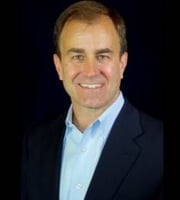 Christopher Hodges,
Christopher Hodges,
Intelligent Automation Leader, Speaker, Consultant, Author
My name is Christopher, most call me Chris. I am the author of the upcoming "Noble Automation Now".
I am a former Intelligent Automation Leader for Accenture and Deloite and now an independent consultant and speaker. I work with business leaders who want to increase their profits while calming and motivating their people.
As a professional speaker and consultant, I train leaders how to profitably embrace Intelligent Automation and inspire their teams. In fact, For 25 years I have helped Global Fortune 500 companies to understand, apply and succeed with technology. I now speak and consult globally on successfully leading with automation.
As a result of my work, leaders achieve more innovation and motivate their teams all while profiting from intelligent automation.On a personal note, my Japanese wife has had me traipsing around the world looking for the next great soak for 30 years.
If your business needs automation and artificial intelligence and you are not sure how to implement without damaging your team, maybe we should work together - Now.

View our schedule of industry leading free to attend virtual conferences. Each a premier gathering of industry thought leaders and experts sharing key solutions to current challenges.
View Schedule of EventsWelcome to BTOES Insights, the content portal for Business Transformation & Operational Excellence opinions, reports & news.
-------------------------------------------------------
Search for anything
Insights from the most progressive thought leaders delivered to your inbox.
Insights from the world's foremost thought leaders delivered to your inbox.
Being a hero is all about creating value for others. Please invite up to 5 people in your network to attend this premier virtual conference, and they will receive an invitation to attend.
If it’s easier for you, please enter your email address below, and click the button, and we will send you the invitation email that you can forward to relevant people in your network.
View our schedule of industry leading free to attend virtual conferences. Each a premier gathering of industry thought leaders and experts sharing key solutions to current challenges.
View Schedule of EventsWatch On-Demand Recording - Access all sessions from progressive thought leaders free of charge from our industry leading virtual conferences.
Watch On-Demand Recordings For FreeDelivered by the industry's most progressive thought leaders from the world's top brands. Start learning today!
View All Courses NowThe premier Business Transformation & Operational Excellence Conference. Watch sessions on-demand for free. Use code: BFH1120
Watch On-DemandInsights from the most progressive thought leaders delivered to your inbox.
Insights from the world's foremost thought leaders delivered to your inbox.
Being a hero is all about creating value for others. Please invite up to 5 people in your network to also access our newsletter. They will receive an invitation and an option to subscribe.
If it’s easier for you, please enter your email address below, and click the button, and we will send you the invitation email that you can forward to relevant people in your network.
Courtesy of Nintex Pty's Paul Hsu, below is a transcript of his speaking session on 'Improve employee productivity during and post-COVID by ...
Read this article about HP, Best Achievement in Operational Excellence to deliver Digital Transformation, selected by the independent judging panel, ...
Read this article about BMO Financial Group, one of our finalists, in the category Best Achievement in Operational Excellence to deliver Digital ...
Read this article about Cisco, one of our finalists, in the category Best Achievement of Operational Excellence in Internet, Education, Media & ...


